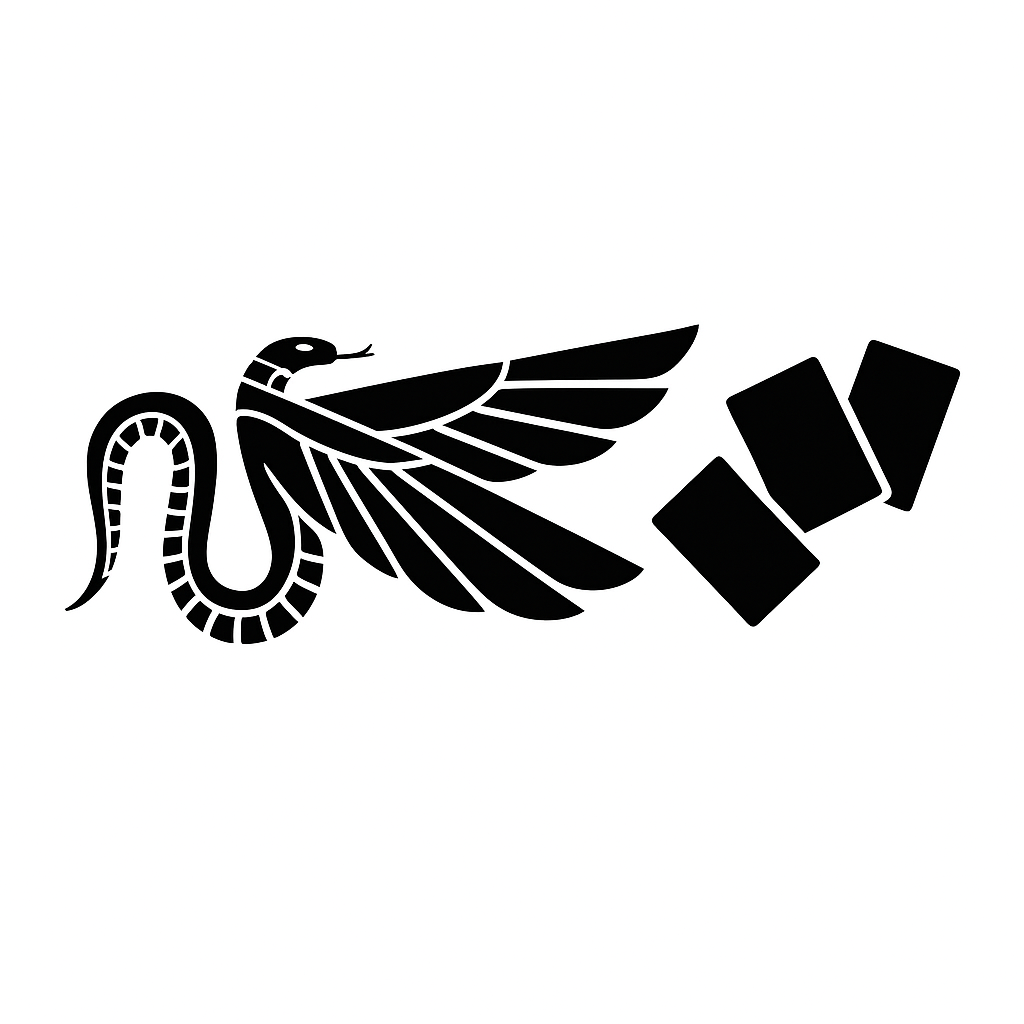
This page serves as the backbone of my beliefs, ethics and practices towards Tarot. It is where I clarify what Tarot is—and is not. If you’re wondering how I read, teach, and understand the cards, this is your map.
⚡ The Power of Belief
“Whether you think you can or think you can’t, you’re right.”
Henry Ford
This quote reflects the cognitive power of belief—deep-rooted assumptions that shape our thoughts, behaviors, and perception of the world. Belief defines our reality.
The beliefs outlined herein are simply my current assumptions and interpretations— Some of them may be wrong. I encourage you to challenge my beliefs, just as I will challenge yours.
🧠 My Knowledge
“I know that I know nothing.”
Socrates
Let me begin by saying: I am a humble student of Tarot. The deeper I dive into it, the more I realize how little I truly know. My understanding of Tarot is constantly evolving—shaped by study, reflection, and experience.
Take my knowledge—and all that I say—with a grain of salt.
🎯 My Mission
To educate, demystify, and present the Tarot—not as a tool for fortune-telling, but as a psychological instrument for awakening intuition, deepening insight, fostering creativity, and promoting mental clarity and well-being.
⭐ My Vision
I envision a future where Tarot is recognized not as superstition or novelty, but as a catalyst for self-discovery—a mirror for the psyche, a guide for inner alignment, and a companion in times of uncertainty.
In this future:
- People no longer fear the unknown—they interrogate it.
- Tarot is not used to bypass responsibility—but to deepen it.
- Individuals reclaim their agency, drawing upon inner wisdom, not external fate.
🎓 My Philosophy
“The true Tarot is symbolism; it speaks no other language and offers no other signs.”
Arthur Edward Waite
My philosophy is grounded in the belief that Tarot is a symbolic tool—neither divine nor demonic. It is best used for reflection, healing, problem-solving, and critical thought. It should never be used to abdicate responsibility, forecast fate, or contact spirits.
The following sections expand upon this belief—clarifying what Tarot is, and what it is not.
🧭 Tarot is for Guidance, Not Dictation
“Tarot is a good servant, but a bad master”
Hajo Banzhaf
Tarot is a compass, not a map. It can help orient us through complexity—but it cannot (and should not) choose our path.
The cards reflect possibility, not certainty. If we begin treating Tarot as destiny, we forfeit our will and fall into fatalism. Tarot is a guide—not a governor.
Use it with discernment, or be used by it.
🔮 Tarot is not Mystical, Magical, or Mysterious
“There is no fate but what we make.”
— Sarah Connor (Terminator II)
This quote echoes a timeless truth: fate is not fixed; it is forged by choice.
Tarot is not mystical. It is not magical. It is not mysterious. It can not predict your future, or determine your fate. Tarot should not be glorified or placed upon a pedestal. Tarot is simple a deck of illustrated playing cards, nothing more—and nothing less.
Used correctly, Tarot feels profound—but this is not evidence of supernatural power. It is the mind, interpreting symbols, that produces insight—not the cards themselves.
Do not confuse meaningful reflection with spiritual revelation. Tarot is not prophecy. It is perspective.
🔗 Tarot is Not a Magick 8 Ball
🔗 Tarot ≠ Kabbalah
🔗 Tarot and the Tradition Trap
🪞 Tarot is a Metaphorical Mirror
“If eyes are the window to the soul, then Tarot is its doorway.”
Maisy Bristol
Although I reject the mystical, magical, and mysterious claims about Tarot, I affirm its symbolic power. Tarot is like a psychological mirror—it reflects hidden truths, much like the theories behind psychoanalysis and modern psychology.
By using Tarot, we can bring hidden thoughts and emotions into conscious awareness, helping us better understand the deeper forces that influence our lives.
The symbols and artwork of the cards unlock this information, offering creative solutions to the challenges we face and empowering us to take control of our fate.
🔗 Tarot: A Mirror of the Self
🔗 Tarot: A Mirror, Not a Prescription
⚙️ How does Tarot Work?
Tarot is psychological. It’s a cognitive tool that stimulates both the analytical and intuitive mind. Its symbols trigger subconscious associations, which rise into consciousness as insight.
The Tarot functions much like a language of metaphor—and like any language, it must be studied, practiced, and applied with discipline.
Tarot disciplines thought. It does not bypass it.
🔗 Theories on How Tarot Works?
🔗 Seraph’s Theory: How Tarot Really Works 💥
🃏 My Technique
I consider myself an intuitive reader—not a psychic one. I work primarily with the Rider–Waite–Smith Tarot deck, renowned for its rich symbolism and traditional structure—qualities often absent in many modern decks.
My approach is rooted in Jungian psychology, particularly the process of individuation—the integration of the unconscious into conscious awareness. I read Tarot through a psychological lens, not a spiritual one, using the cards as mirrors for self-reflection, not as tools of divination.
My technique blends traditional meanings with symbolic analysis and creative interpretation, inviting insight—not prophecy.
🔗 What is Intuition?
🔗 Critical Theory Techniques in Tarot Interpretation
🔗 Carl Jung: Archetypal Roots of Tarot
⚖️ My Code of Ethics
I adhere to a strict code of professional ethics. My readings are non-dogmatic, respectful, and psychologically grounded.
✒️ Final Note
If you are looking for a reader to tell you your future, I am not your guide. But if you are seeking someone who will challenge your thinking, confront your blind spots, and help you uncover your inner resources—I welcome you.
Tarot is a dialogue, not a monologue.
Let us begin the conversation.
